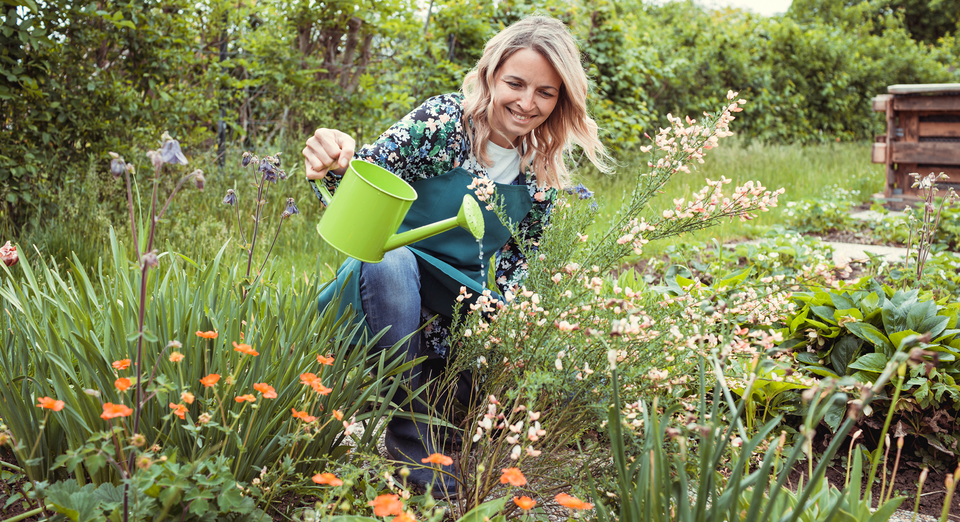
As the first German Baumarkt DIY store, toom has committed itself to reducing the use of synthetic chemical pesticides and enlisted the support of the independent environmental protection organisation GLOBAL 2000. In the first step of the joint pesticide screening programme, 22 items were systematically replaced with more sustainable alternatives in 2022.
Protecting species and the environment has been a matter close to toom's heart for years. And blooming gardens with colourful ornamental plants - free of weeds and pests - are the dream of every garden fan. To ensure that the beds can be designed and maintained in a particularly sustainable way, toom is increasingly focussing its efforts on reducing and phasing out pesticides and biocides. To this end, toom has been intensively monitoring residues in plant production since 2015 in order to continuously promote environmental and insect protection. In addition, the cooperation with the independent environmental protection organisation GLOBAL 2000, which has been in place since 2020, aims to examine the entire range of pesticides for risks to humans and animals.
Using the Ecotox Index developed by GLOBAL 2000, various products have now been identified whose active ingredients pose a particular risk. The dangers of the active ingredients are categorised using a traffic light system. In addition to the risks of individual active ingredients, the risk of negative cocktail effects was also included in the assessment.
The next logical step for toom: last year, a total of 22 articles were banned from the product range and replaced with more environmentally friendly alternatives. These include products for plant protection and conventional pest control. A few items, such as rodenticides, are excluded due to the lack of more environmentally friendly alternatives. The discontinued products include all those that have been labelled as "red" within the risk traffic light system.
"We are very proud to be able to further expand our plans for even greater Sustainability in the pesticide and biocide sector and to set a good example in the industry," says Dominique Rotondi, Managing Director Purchasing and Logistics. "By expanding our negative list, three quarters of our pesticide products are now of biological or biotechnological origin," continues Rotondi. And good news for the bees too: Here, too, the remaining range is free from highly hazardous synthetic chemical pesticides.
In the area of pest control, the verdict is even better: Due to the discontinuation of affected insecticides, repellents and molluscicides, a large proportion of the remaining range is organic or biotechnological. Here too, the range will be completely free of biocides that are particularly harmful to bees.
Rotondi explains that there is more to come after the initial product range changeover: "Based on the results, we will replace other products with less hazardous alternatives by the end of 2023. This way, our customers can join us on the path to sustainability in their gardens."
